On the eve of the tax deadline in the United States, we examine 10 films where taxes were used as a primary plot motivation.
Taxes may be as certain as death, and they may not be very popular among those of us with hard-earned money, but they do allow for certain services which ultimately benefit all of us. Taxes also represent a subject matter which most of us are pretty familiar with because we have to pay them. As a result, they can serve as an important topic in film. Not just because of what they can accomplish, but because just about everyone hates paying them.
We all can think of better ways we would rather have our tax money spent, but the point is they are something that are almost universally an inconvenience. By having a plot revolve or have motivation based off of that inconvenience, films can connect with the audience. Even if we don’t understand the intricacies of how taxes work, we know that if you fail to pay them you can get in trouble. Below I have listed 10 popular films (in no particular order) where the topic of taxes play a critical role in the plot.
**SPOILER ALERT** – The discussion of how taxes play a role in the following film does reveal some key plot details. Proceed at your own risk!
Say Anything (1989)
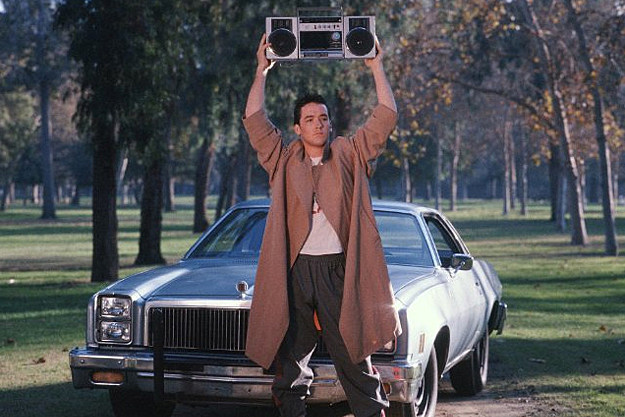
Plot: The tale of an unlikely high school romance when slacker Lloyd decides to ask out the class valedictorian (Diane), who actually agrees, much to the chagrin of her controlling father.
What do Taxes Have to do with it? Diane’s father, Jim becomes the subject of an IRS investigation for tax evasion. Ultimately he is sentenced to prison which keeps him away from interfering in Diane’s relationship with Lloyd, and eventually allows Lloyd to travel to Europe with Diane. Jim claims his actions were motivated by his love of Diane, as he was trying to pay for her future.
The Untouchables (1987)
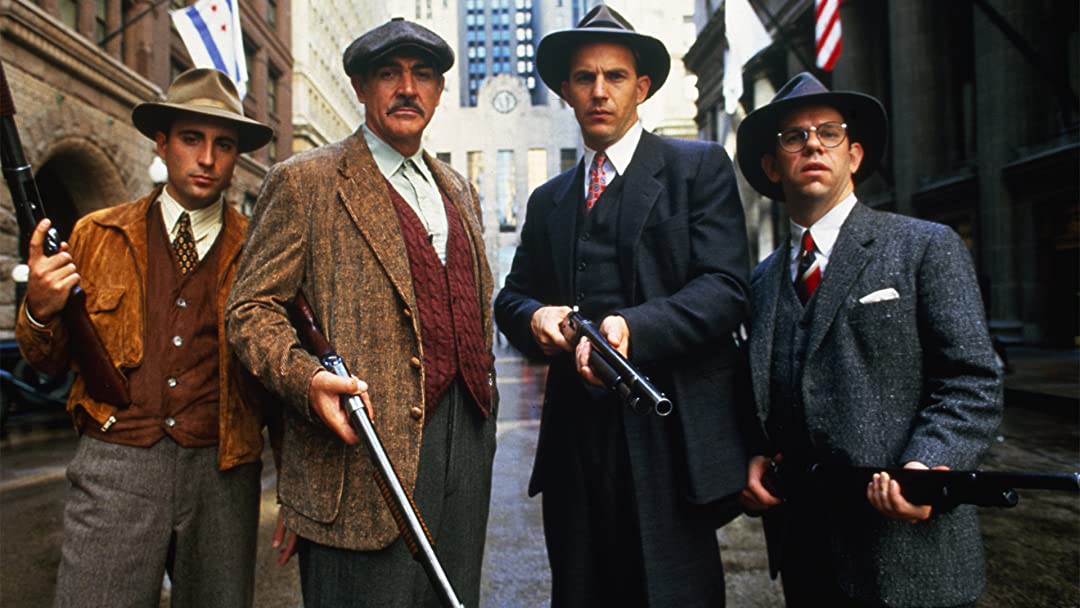
Plot: A group of government agents is given the nearly impossible task of bringing down notorious gangster Al Capone during the height of his control over Chicago during Prohibition.
What do Taxes Have to do with it? Due to Capone’s nearly impenetrable crime ring, (and the bribes he has paid to many government officials at all levels) building a case against him for his crimes proves to be very difficult. However, they come to realize Capone has not filed income tax returns over the last 4 years, and this motivates their operation. Ultimately they are able to obtain enough evidence, capture Capone, and have him sentenced to prison for tax evasion.
Happy Gilmore (1996)

Plot: Unsuccessful hockey player Happy Gilmore finds he has talent at golf. When his grandmother’s home faces foreclosure, he joins golf tournaments to try and raise money to save her house.
What do Taxes Have to do with it? The entire film is motivated by taxes because Gilmore’s grandmother owes $275k to the IRS, which is why her house is being foreclosed. As some of her possessions are being repossessed, Happy is challenged to a long-drive competition by the movers where he finds out his unique talent.
The Blues Brothers (1980)

Plot: Jake and Elwood Blues travel the midwest seeking to reunite their band in order to raise money to save the orphanage they grew up in.
What do Taxes Have to do with it? The orphanage owes $5,000 in property taxes and will be shut down unless this can be paid. This is what initially inspires the Blues Brothers to get the band back together again.
The Shawshank Redemption (1994)
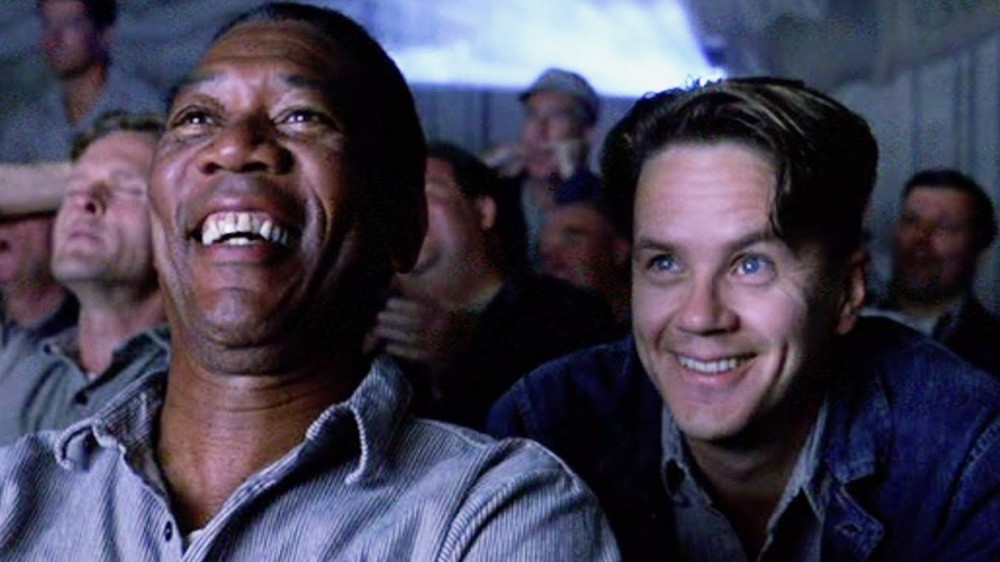
Plot: Andy Dufresne is sentenced to life in prison, where he meets fellow inmate Red and over the course of nearly two decades their friendship grows until they decide to escape.
What do Taxes Have to do with it? Andy is a banker, and as a new inmate he is attacked by the more violent felons. When he learns of a guard having tax trouble, he helps him out. This act of kindness is noticed by the other guards and Andy helps them out too. Soon, they begin protecting Andy and allowing him to survive in the violent prison.
The Firm (1993)
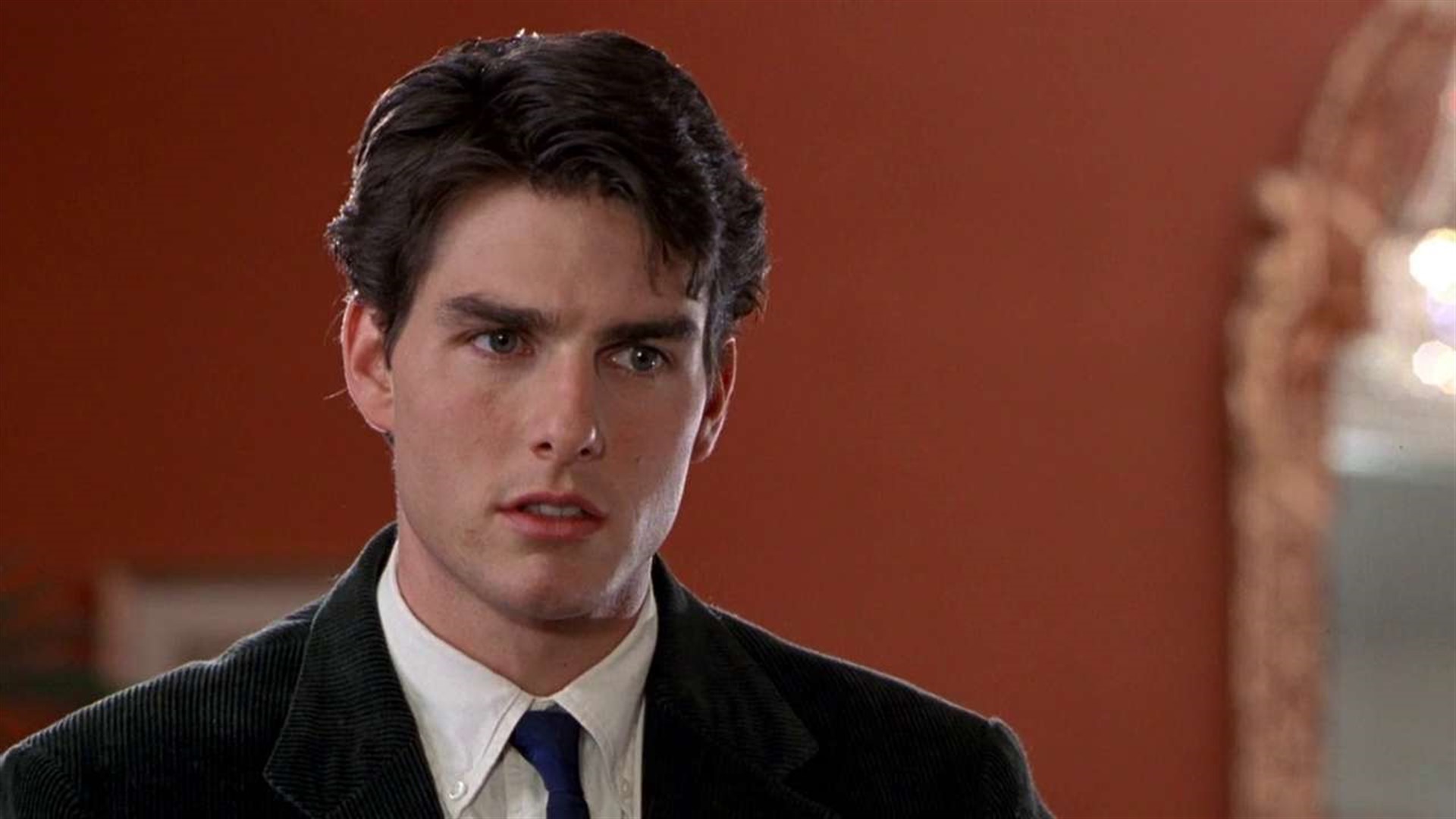
Plot: When law student Mitch lands a dream job at a powerful high-end law firm everything seems too good to be true. But as he works with high profile clients he begins to understand the shady operations of his firm and has to decide whether to turn a blind eye and reap the benefits, or risk his career and life to stop them.
What do Taxes Have to do with it? Mitch first becomes suspicious when he learns how his firm helps clients move money to off-shore accounts in order to evade taxes. Later, he learns how one of the firm’s clients is a crime family who are wanted by the FBI for tax evasion. Eventually Mitch has to help the FBI to bring in evidence against the crime family and his firm.
The Laundromat (2019)

Plot: Three tales of suspicious accounting practices based on real world events are used to discuss the implications behind the Panama Papers scandal. In particular the film focuses on a company called Mossack Fonseca which is responsible for creating thousands of overseas shell companies to help people avoid governmental jurisdiction.
What do Taxes Have to do with it? One of the primary reason a person may set up a shell company is to avoid paying taxes. These efforts create tax havens which were nearly untraceable, until details of the Panama Papers emerged.
The House of Gucci (2021)

Plot: The story of how Patrizia Reggani marries Maurizio Gucci and together they come to control the Gucci fashion empire. However, greed comes between them and causes them to each take desperate actions against the other, to their own downfall.
What do Taxes Have to do with it? Maurizio’s uncle Aldo is responsible for managing the brand and has a controlling interest in the company. When Aldo is unwilling to relinquish his power, Maurizio releases proof of Aldo having evaded taxes. Aldo heads to prison which gives Maurizio the opportunity to assert himself.
Out of the Past (1947)
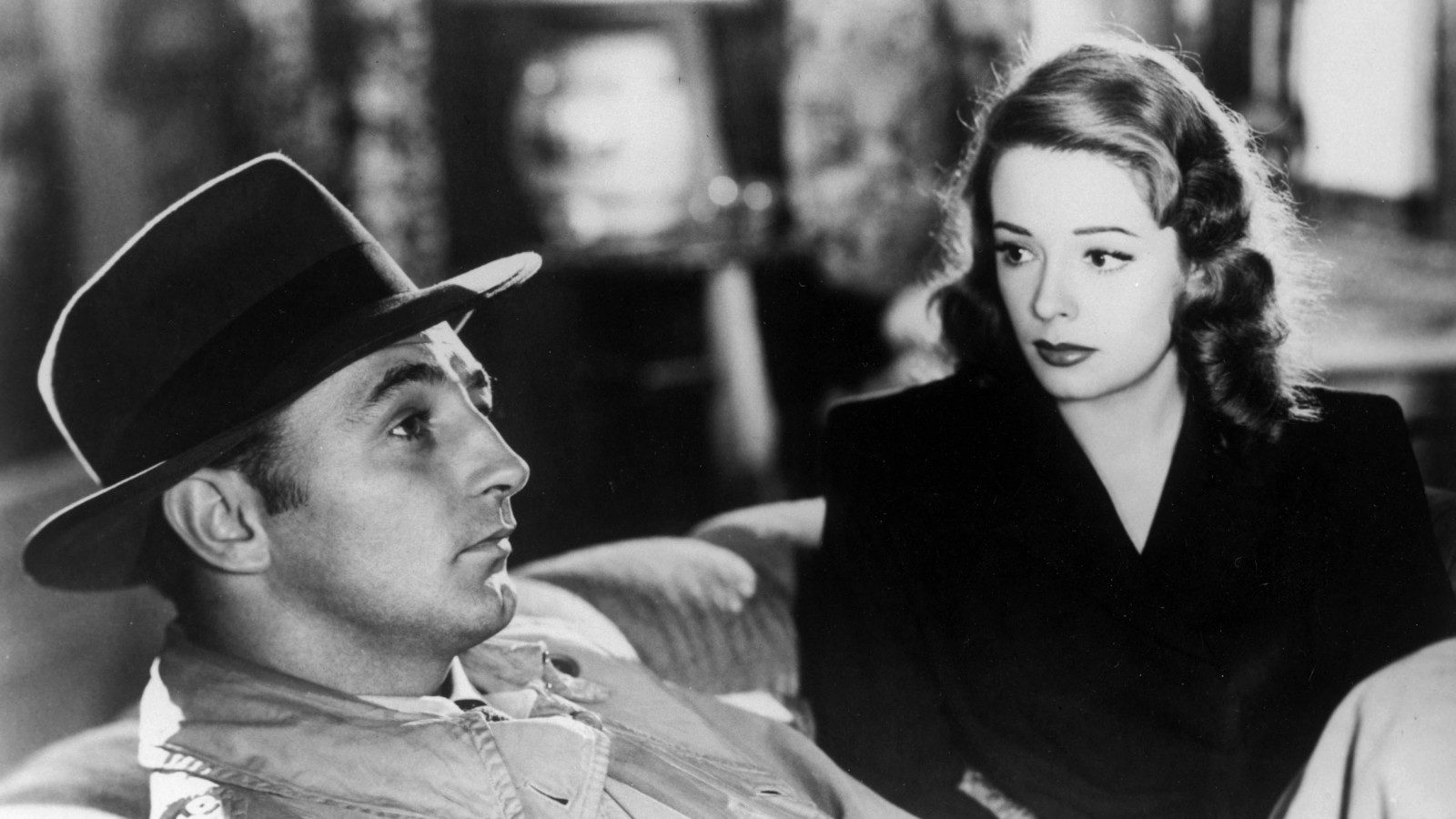
Mandatory Credit: Photo by RKO/Kobal/REX/Shutterstock (5885539at)
Robert Mitchum, Jane Greer
Out Of The Past / Build My Gallows High – 1947
Director: Jacques Tourneur
RKO
USA
Scene Still
Build My Gallows High
La Griffe du passé
Plot: Jeff Bailey is a former private investigator trying to live a stress-free life. When a figure from his past seeks him out (Whit Stirling), he is blackmailed into working for a powerful kingpin with which he had unfinished business. Bailey is forced back into the unsavory line of work he had tried so hard to avoid, and navigates a complicated web of lies and deceit to stay alive.
What do Taxes Have to do with it? Stirling is forced to seek Bailey out when a lawyer tries to blackmail him because of tax evasion. Stirling wants Bailey to obtain evidence against the lawyer, but in the process is trying to frame him for his previous discretions. Bailey later uses the tax evidence in a trade with Stirling to obtain the evidence of him committing murder.
The Adventures of Robin Hood (1938)

Plot: Sir Robin of Loxley opposes the brutal rule of Prince John, and has his nobility taken away and is cast out of court. Robin forms a group of men to wage a guerilla war against Prince John’s rule, famously championing the rights of the poor against the tyranny of the wealthy.
What do Taxes Have to do with it? When Price John becomes the King of England following the capture of his brother, one of the first things he does is raise taxes to become more wealthy. This causes the Saxon populace to become resentful against the new King, and allows Robin to find a common cause to unite his band of merry men.

